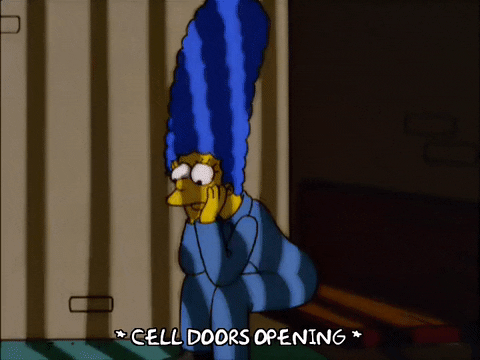
The Bail Bond Process: From Arrest to Release
bail bonds, criminal justice, incarceration, bail process, freedom, bail types, bail bond agents, financial options
Are you facing criminal charges and feeling overwhelmed by the prospect of jail time? The bail bond process may be the key to your liberation while awaiting your court appearances.
This important aspect of the criminal justice system allows defendants to avoid incarceration by providing a form of collateral to ensure their appearance in court.
Understanding the bail bond process is crucial in navigating this confusing and often stressful situation. There are various types of bail bonds available, including cash, surety, and property bonds, each with its unique requirements and conditions.
This article will guide you through the intricacies of the bail bond process, including how it works, what factors influence bail amounts, and the role of bail bondsmen. With this knowledge, you can make informed decisions and take steps toward your freedom.

Types of Bail
You may be wondering about the different types of bail available, such as surety, recognizance, cash, and property, and how they fit into the bail bond process you already know about. While we will cover that in this article, if you need immediate help with bail bonds, visit https://www.bobblockbailbonds.com/ for nationwide bail bonding service.
Surety bail is when a bail bond agent guarantees to pay the full amount of bail if the defendant fails to appear in court. Recognizance bail is when the defendant is released on their own recognizance without having to post bail.
Cash bail is paid directly to the court and can be refunded at the end of the case if the defendant appears for all necessary court hearings. Property bail involves using property as collateral to secure bail.
It's important to note that not all types of bail are available in every case. The judge will determine which type of bail is appropriate based on the severity of the crime and the defendant's criminal history.
Your bail bond agent can help you understand which type of bail is being used in your case and what your obligations are in regard to meeting bail conditions and appearing at all necessary court hearings.
No matter which type of bail is used in your case, working with a reputable bail bond agency is important to ensure a smooth and efficient process. Bail bond agents can offer guidance, support, and financing options to help you or your loved one get out of jail and prepare for the upcoming court case.
Don't hesitate to contact a bail bond agent if you need assistance navigating the bail process.

Paying for Bail
If you're struggling to come up with the funds to pay for bail, don't worry; options are available to you.
One option is to pay the bail amount directly to the court. This can be done in cash or with a cashier's check. However, remember that if the defendant doesn't show up for their court date, the bail money is forfeited and not refunded.
Another option is to work with a bail bondsman. They'll typically charge a fee, which is usually around 10% of the bail amount. This fee is non-refundable and serves as their profit for taking on the risk of guaranteeing the defendant's appearance in court. Additionally, collateral, such as property or other valuable assets, may be required to secure the bond.
If paying the full percentage to a bail bondsman is still too much, other financing options may be available. Some bail bond agencies offer payment plans or financing options to help make the cost more manageable.
Researching and comparing different options is important to find the best fit for your situation. Remember, the goal is to secure the defendant's release and ensure their appearance in court, so don't let financial constraints prevent that from happening.

Impact of Bail on Incarceration
The controversial issue of bail and its impact on incarceration rates has sparked a nationwide debate in recent years. Many argue that the bail system unfairly targets low-income individuals, as they cannot afford the high fees associated with securing their release from jail.
This has led to a situation where many individuals who have yet to be convicted of a crime are in jail simply because they cannot afford to post bail. The impact of this system is particularly felt by marginalized communities where poverty is already high.
Research has shown that pretrial detention can lead to job loss, family disruption, and even homelessness. Additionally, individuals who cannot post bail are more likely to accept plea deals, even if they are innocent, simply to avoid the hardship of remaining in jail.
Reform efforts have been ongoing, with some states eliminating cash bail altogether. Others have implemented risk assessment tools to determine whether a defendant is a flight risk or a danger to society rather than relying solely on their ability to pay bail. It remains to be seen how these changes will impact the criminal justice system, but one thing is clear: the current bail system is a burden on those least able to afford it, and alternatives must be explored.











